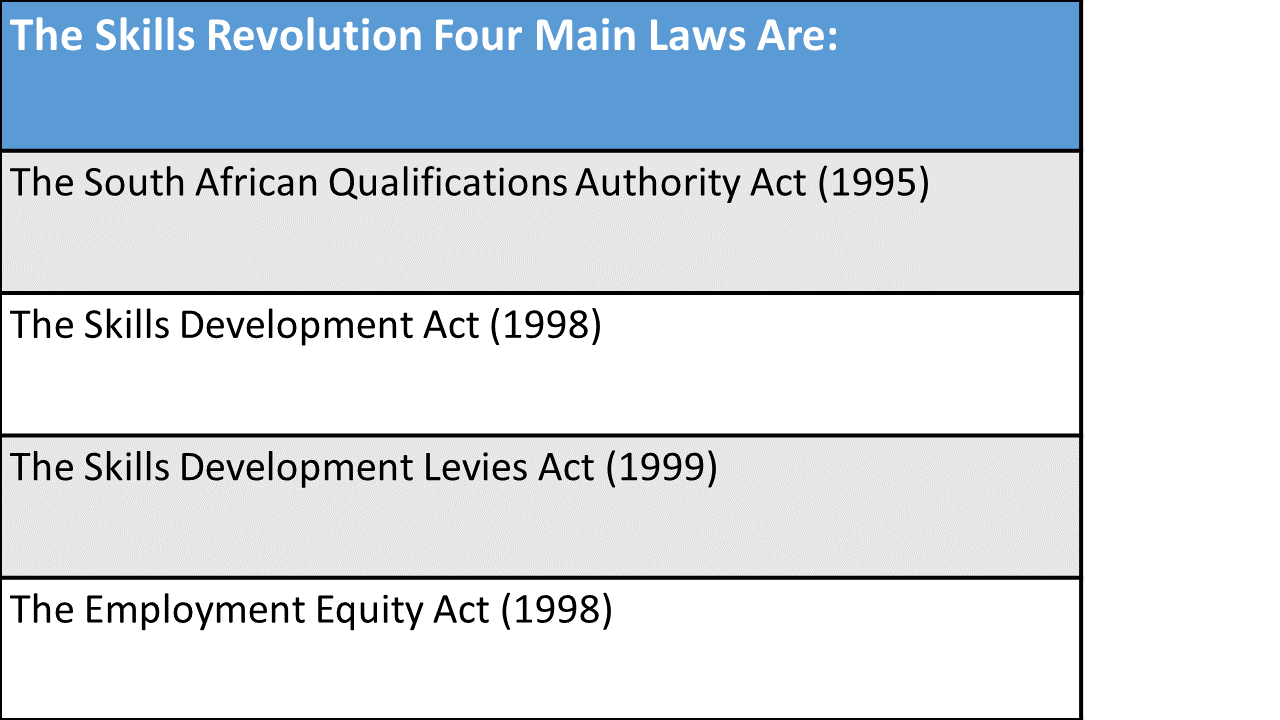Most industries in South Africa have a great number of unskilled labourers. To remain competitive, industries will need a highly skilled and flexible workforce requiring far greater emphasis on the training and development of the workforce.
The need to find a workable solution for the training and development of the workforce necessitated the creation of a system that is different from past government policies and regulations of the bodies that governed South Africa's education and training.
The outcome was the National Qualifications Framework (NQF) which has been established in order to transform education and training into a flexible and dynamic system. Individuals are now able to obtain qualifications according to individual and employer needs.
The skills revolution in South Africa is governed and driven by a number of laws.
The four main laws are:

Click here to view a video that explains the importance of skills and training in the workplace.
Why Do We Need Skills?
- There are problems in the labour market – the way the labour market functions in all countries have challenges and problems.
- There is discrimination – on the basis of race, gender, disability, etc.
- The segmentation in the labour market – the labour market is divided into segments which make it difficult for workers to move around.
- The separation of education and training – there were few links between education and training and skills needed at the workplace.
- Insecure jobs- many workers worked casual, temporary and other kinds of insecure jobs.
- The informal sector – many workers working in the informal sector.
- High unemployment – this was much bigger amongst black people than white people; women than men; able than disable and rural than urban.
- Tariffs and subsidies – SA employers are protected from competition.
- Globalisation – the economies of all countries in the world are becoming more and more linked with globalization.